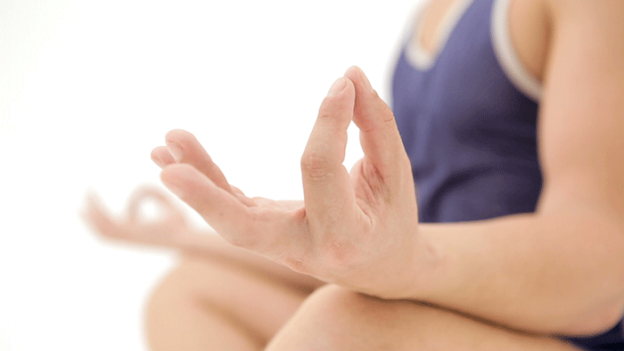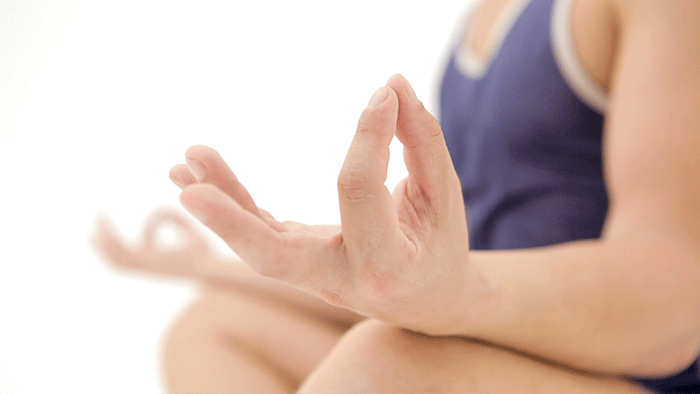The Niyamas are there to inform our ethical dealings with ourselves and the world, and are therefore essential to living a grounded and honest life.
In The Tree of Yoga, BKS Iyengar describes the second of the Eight Limbs, the Niyamas or observances, as the solid trunk that supports and stabilises personal growth.
We can’t really say that we practise yoga without observing the Niyamas. Not only can they help guide us through our daily decision making, but they also inform our asanas, preparing our bodies through purification for physical practice and developing psychological balance.
The Niyamas also ask us to open to the more spiritual aspect of yoga, becoming one with the universe. This connection or union, which is how the word ‘yoga’ is often translated, is what we are really aiming for in our yoga practice.
What are the Niyama values?
Just like the Yamas, our application of these observances has changed over time and they can be just as relevant to modern life in the West as to the more rarefied circumstances through which the Niyamas evolved. They are: Saucha or cleanliness; Santosha or contentment; Tapas, self-discipline; Svadyhaha or self-study, and Ishvarapranidhana, surrender to spirit.
Saucha – cleanliness
Most trainee yoga teachers are required to read a rather large tome called the Hatha Yoga Pradipika to build their yoga philosophy knowledge, and can be rather surprised by some of the more radical cleansing techniques prescribed there, such as swallowing and regurgitating lengths of cotton to cleanse the intestines, or rectal cleansing – I’ll stop there! Now, it’s more about keeping our mind clear for our practice as well as coming to the mat with a clean body and clothes. This is also a courtesy to the rest of the students in our yoga class. One of my students has taken this precept to help them keep their home tidy and create a more sacred space for their practice, getting rid of distracting clutter. It’s no longer a requirement to clean our floor with our own urine and wash the walls with manure before we practice…
Santosha – contentment
In such a commercial world, where we can shop at the press of a button, learning to be content with what we have and to really appreciate it makes Santosha a very contemporary value. There has been a recent interest in the art of decluttering (try reading James Wallman’s book Stuffocation for inspiration on how to get rid of inessentials) and this Niyama is helpful in reminding us not to acquire things for the sake of it. Do we really need that new pair of yoga pants, or is it just a passing desire, probably based on an emotional need? I tend to fill the shopping carts of online stores, go to bed, and then wake up in the morning and find I don’t actually want something I couldn’t live without last night. Keeping our possessions to what we need and truly love helps us keep our mind and environment free of clutter and chaos.
Tapas – self-discipline
This Niyama sounds intimidating, but it can be translated as anything from ‘austerity’ all the way to what Iyengar calls ‘burning desire’. We have to remember that Tapas is a self-imposed discipline and it doesn’t have to mean ‘standing for hours in cold water on one foot or wearing a loin cloth in freezing weather’, as the Pradipika reminds us. This discipline could be committing to a daily yoga practice or eating a healthy diet. For yogis, food is something that purifies and fuels the body, being something that we eat ‘cautiously, with awareness and with a higher purpose than sensual pleasure’ (Pradipika). Tapas could mean getting up an hour earlier each day to practice, meditate and eat a nourishing breakfast. When we have achieved this consistently, and it is no longer a discipline, we find another challenge and work with that, and so on. It is a constant process of self-improvement.
Svadyaya – self-study
This concept of personal development brings us neatly to the Niyama Svadyaya, which asks us to keep learning and growing, getting to know ourselves and make better life choices. This could mean literally studying yoga texts and using them to inform our personal philosophy, but it could also involve keeping a daily journal or practising something like Julia Cameron’s concept of writing morning pages, freehand stream of consciousness writing that can tap into our deepest creativity and enable reflection, clearing our mind for the day ahead. Alternatively, you can try reading a few pages a night from an inspirational text to give you pause for reflection. I love The Tibetan Book of Living and Dying as well as Donna Farhi’s Bringing Yoga to Life.
Ishvarapranidhana – surrender to the universe
This Niyama also translates as ‘surrender to God’, which people can find a little intimidating, but I tend to think of it as accepting my place in the universe and recognising that there are higher powers at work beyond my control. There is something quite liberating about relinquishing trying to dictate your life in all its detail and opening up to possibility during meditation or reflection. Iyengar calls this ability to surrender the development of a ‘more mature intelligence’, and the capacity to step back from problems and provocations can be what brings us mental peace. Even scientific research is now documenting long term effects of meditation as making us less aggressive and less prone to overreaction. If this Niyama can help us to let go, forgive and walk away, then it is one truly worth practising; therefore, it is perhaps the hardest of all the yoga values to observe.
This post was written by Tracy Johnson, the founder of Brainbox Coaching and Empower Yoga Bristol. She trained under Sally Parkes and is a 200 hour RYT with Yoga Alliance. Tracy blends her yoga teaching with confidence coaching and stress management to create a holistic practice, and runs her classes with warmth and humour. She is the author of a careers guide, Working in Science, co-author of The Coaching Gurus, and writes for publications such as OM Yoga Magazine, Globe of Love, Happiness+Wellbeing, MindBodyGreen and has been featured in the Guardian, Body Fit magazine, the Bristol Post and Cardiff Life. She is also a career and confidence coach, self-defence instructor and an Integrative Nutrition Health Coach, and is currently writing a book combining yoga with her coaching techniques for stress management. Follow Tracy on Twitter.
Visit our Yoga for Stress and Anxiety: A Complete Guide







Leave a Reply